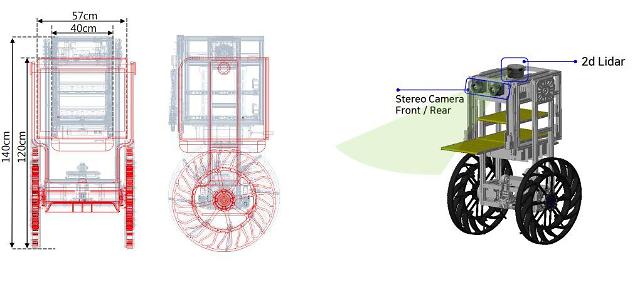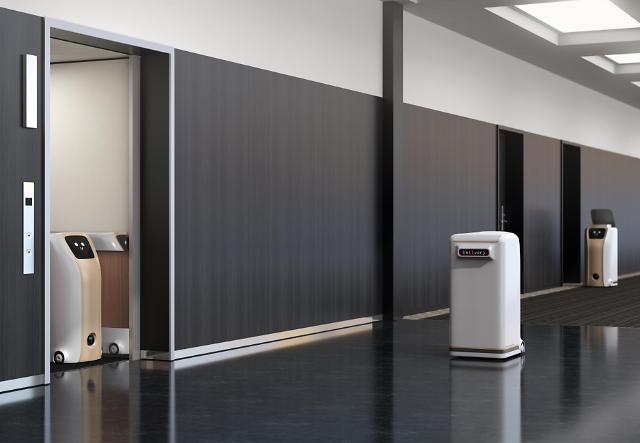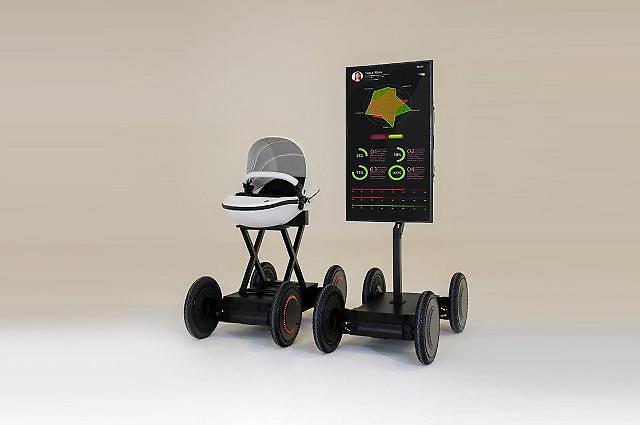
[Courtesy of Mobinn]
SEOUL -- An autonomous robot created by Mobinn, an in-house venture of South Korea's Hyundai auto group, will be deployed for a pilot last-mile delivery service from a convenience store to the doorstep of customers. The goal is to check the driving performance of delivery robots and their ability to overcome obstacles in urban environments.
BGF Retail, the operator of South Korea's largest convenience store chain CU, tied up with Mobinn and NICE Information & Telecommunication to form a tripartite consultative body for last mile robot delivery and start a pilot service in September from a CU store to an apartment building near a Hyundai Motor's research center in Hwaseong, about 30 kilometers (18 miles) southwest of Seoul.
They will try to commercialize a robot delivery service in conjunction with CU's delivery order app after checking the indoor and outdoor driving performance of Mobinn's robot that can overcome stairs and slopes while keeping loading boxes horizontal even, making them suitable for the delivery of lunch boxes and instant coffee.
BGF Retail will provide offline stores to verify the commercialization of robot delivery and also consider ways to use CU stores as a hub for charging and storing robots. NICE Information & Telecommunication will upgrade a delivery platform and servers. Mobinn verifies the possibility and scalability of commercializing delivery services.
"Through this business agreement, we believe that the last mile robot delivery will be a new goal for consumers using delivery services and the future mobility industry," Yang Jae-seok, head of BGF Retail's management and planning office, said in a statement on August 25.
In cities, door-to-door delivery services are not easy with existing delivery robots. Legged or agility robots are inefficient in terms of production cost and delivery performance. Mobinn has tried to develop robots that satisfy requirements such as relatively low production costs, high payload, and energy efficiency by adopting flexible rubber wheels and unique structures. The upper structure is controlled like a swinging bell to maintain the level of loaded goods.
Various autonomous robots have been tested in South Korea. Some are able to communicate with elevators so that they can call a lift to move up and down floors inside a building. In May 2022, the Hyundai auto group tied up with Smart Optical Sensors Lab (SOS Lab), a domestic developer of solid-state lidar sensors, to develop a miniaturized lidar system for robots that can move stably between obstacles or on uneven roads.




